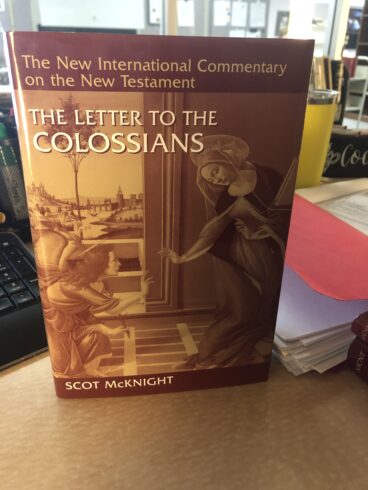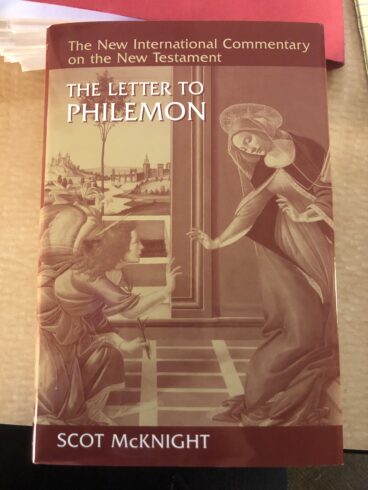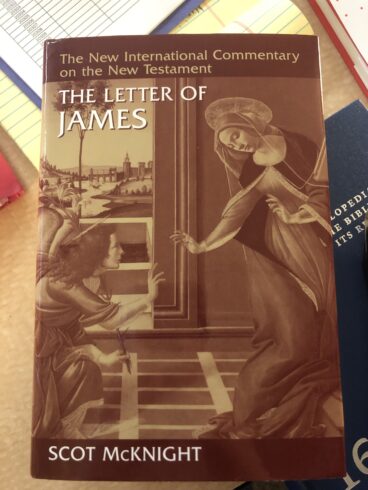Commentaries are not the first book on most people’s TBR (to-be-read) pile of books. They can be thought of as dry and boring, considered useful only to professors and pastors. Yet, commentaries allow us to delve deeper into the Bible itself, by connecting with God, seeing the big picture of the Bible, themes that we may have missed, and cutting through some of the language and cultural mores we may not understand or know.
Here are some New Testament Commentaries:



Offering a compelling vision of the Christian Life; its claims transcend religion and bring politics, culture, spirituality, power, ethnicity and more into play.
Paul urges Philemon to challenge social barriers and establish new realities of conduct and fellowship. His letter is nevertheless a disturbing text that has been used to justify slavery. Though brief, the letter to Philemon requires and rewards close scrutiny.
This commentary by McKnight expounds the often-vexing letter of James both in its own context and in the context of ancient Judaism, the Greco-Roman world, and the emerging Christian faith.

Adapting the methodology of what he calls a new history of religions perspective, Holloway attends carefully to the religious topoi of Philippians, especially the metamorphic myth in chapter 2, and draws significant conclusions about Paul’s personalism and “mysticism.”
(All descriptions of books from the summary on the flap).
